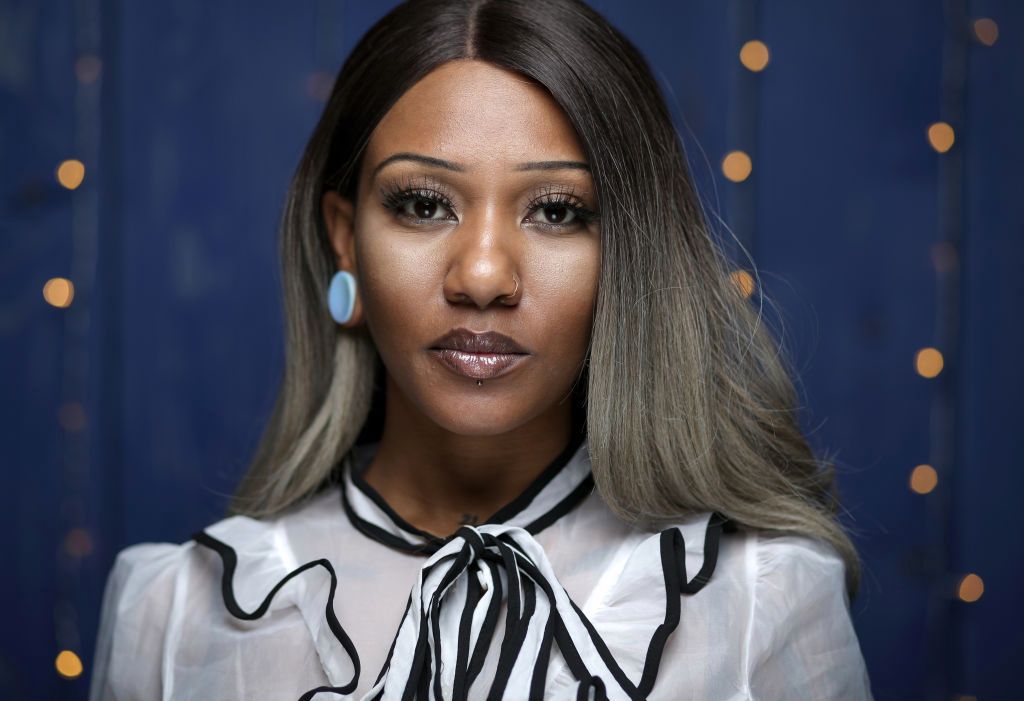
Source: Rich Polk / Getty
I’ve been fascinated by the Zola story since that day in October 2015. To me, it represented the ability of Black women to take a traumatic, scary and hilarious situation and spin it into gold. It’s what we do. And A’Ziah King, better known as Zola, did it marvelously on Twitter of all places. It was a brilliant type of storytelling we haven’t seen before or since. To me, it was a triumph for the marginalized voices of Black women and sex workers that often go completely ignored.
So you can imagine the pain and disappointment I felt when I learned how white men in media and Hollywood specifically were erasing Zola from her own narrative.
A film was to be made about Zola’s tweets but it would be based off a Rolling Stone article, written by David Kusher, a white man, instead of Zola’s tweets—where the nation read the story in the first place. It was going to be written and directed by two white men which is a huge problem, one of them being actor James Franco. White men don’t have a history of relating or understanding the plight of Black women and certainly not those who do sex work. It just didn’t make sense.
Thankfully, three years later, in 2018, we learned that Franco was out and Janizca Bravo, a Black woman was in.
If you were like me, you might have been wondering how Zola felt about all the back and forth—about her being moved out of the picture of her story.
In a recent interview with Allison P. Davis for Vulture, Zola shared the ups and downs of getting her story to the screen.
Since May 2020, Zola has been living with her mother Nichelle, raising her five-year-old and two-month-old daughter. She recently underwent a divorce and was waitressing at a restaurant in Detroit before she decided to come home to Atlanta and be with her mother and reset.
Back in Atlanta, Zola started an OnlyFans page because she claims there’s a huge niche for pregnant porn.
Zola describes her current situation as a “sitting duck.” It’s been a long time since her story went viral in 2015 and for someone who was receiving offers a week after her story went viral, she thought things would have changed for her by now.
According to the Vulture article, “People were sending her their scripts, she says, and asking her to put her “Zola twist on it” for no money. She declined: “I appreciate art, but you’re not getting free labor.’”
People sent contracts to her Nichelle, Zola’s momager, who is also a paralegal.
Zola said the contracts were essentially, “50 million ways of saying you weren’t getting sh*t.”
Davis asked Zola how she felt about the interview process with Kushner, the journalist from Rolling Stone who was credited as the inspiration for the Franco script. She shared after spending 12 hours with him, she liked him initially, even thought they could be friends. But after the article was published, she didn’t hear from him. She liked the story at first and even conceded that it was accurate.
What she didn’t appreciate was how his words would become the center of the movie deal.
“I would see certain interviews or I would hear shit on the radio, and it’d be like, ‘The movie Zola, based off of an article written by David Kushner.’ It’s not based off of a f*cking Rolling Stone article. Stop saying that sh*t.”
Davis writes that there is no standard practice for someone’s life rights when you’re telling their story. And that certainly was the case for Zola’s tweets.
When asked if she thought the movie would have or could have been made without Kushner’s article, Zola said, “Absolutely,” she interrupts firmly before [Davis] even gets the question out. “That’s why I get frustrated by it, because it really didn’t amp up anything. The story was already what it was, it already had a life of its own, it was already in the works, it was already a thing.”
Eventually, Franco, who Zola liked, called to say that he was pulling out of the film.
Zola thought at the time that perhaps it wasn’t meant to be.
Thankfully, her story landed in more appropriate hands.
British actress, Jodie Turner-Smith, overheard Franco saying he was pulling out of the project at a party and she immediately texted director Janicza Bravo who had already expressed interest in directing back in 2015 but was outbid.
When Bravo came on board, she decided to bypass the articles and get back to Zola’s story. And during negotiations, she fought for Zola to be credited.
According to Vulture: “Her legal name, A’Ziah King, appears onscreen with a “Based on the Tweets by” line and an executive-producer credit. As for monetary compensation, NiChelle handled those discussions before Bravo and A24 were even involved. She held off on agreeing to work with producers until they met the number she suggested, securing 2.5 percent of the film’s profits (the original offer from Franco’s team was one percent, she says), a number she requested on the advice of a friend who worked on a Nickelodeon show. Zola was paid life rights, though NiChelle won’t give exact figures. “We’re not rich,” she tells me. “But we’re fine.”
“It means I can get the check tonight, but don’t call me tomorrow,” chimes in Zola with her cackle.”
For Bravo, getting Zola the credit she deserved was vitally important.
She said:
“How can you almost do to her again what happened to her in the story, which was someone trying to take her voice and identity away from her? We couldn’t then, in a Hollywood way, do something that in any way resembles that.”
Jeremy Harris, the co-writer for the script, said this about Bravo’s efforts.
“I will say this very much on the record, that the way that Janicza navigated getting this woman the respect she needed. She did backflips for three years to make sure that Hollywood bureaucracy did not, once again, profit off of a Black woman’s story, a Black woman’s pain, and a Black woman’s complexity without fairly compensating her.”
You can read the full article about Zola’s experience over at Vulture.


